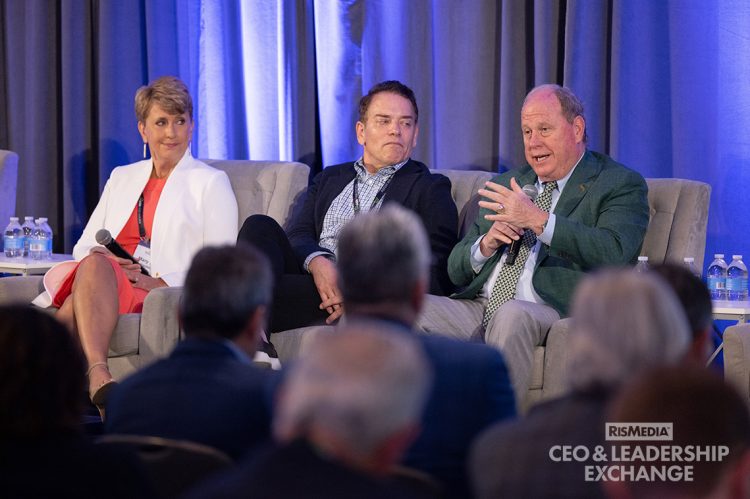Above, from left, Mary Lee Blaylock, senior vice president, HomeServices of America, chairperson, BHHS California Properties; Scott Durkin, president & CEO, Douglas Elliman Real Estate; and Howard ‘Hoddy’ Hanna, chairman, Hanna Holdings, Inc., at RISMedia’s 2023 CEO & Leadership Exchange. (Photo by AJ Canaria)
Real Estate Leaders Discuss Prominent Industry Threats at RISMedia’s CEO & Leadership Exchange


Related Posts
Leave a Reply Cancel reply
Fact: Member Agents Win 60% More Listings*
Homes.com gives members massive amounts of exposure. Your contact info is always on your listings, and your listings are targeted and retargeted to interested buyers across the web. Join today!
*Based on internal analyses comparing Members to non-Members on Homes.com.
Business Tip of the Day provided by
Categories
The Most Important Real Estate News & Events
Click below to receive the latest real estate news and events directly to your inbox.
By signing up, you agree to our TOS and Privacy Policy.











